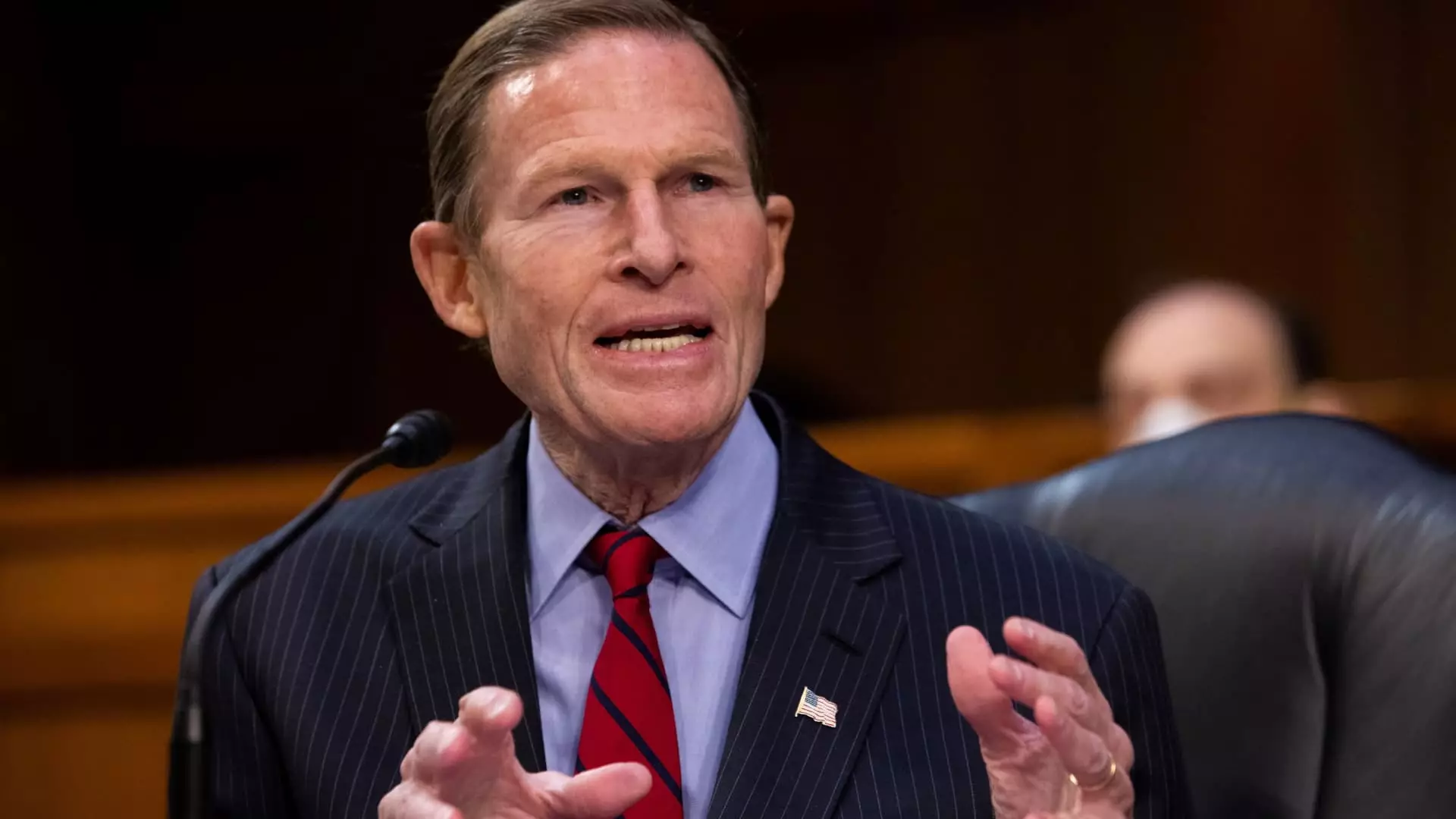The tech landscape is ever-evolving, and partnerships often bloom in the most unexpected places. However, as the vaporous optimism surrounding technological advancements begins to settle, deeper questions emerge, particularly about ethical repercussions and accountability. The recent announcement of Visa’s alignment with Elon Musk’s social media platform X—previously known as Twitter—has raised significant red flags worthy of examination. This partnership could signify not just innovation, but a potential slide into a quagmire of consumer risks that could irreparably harm public trust.
The Irresponsibility of Dismantling Consumer Protections
Senator Richard Blumenthal’s probing inquiry into Visa’s dealings with Musk highlights a crucial issue: compliance with consumer protection regulations. Musk’s recent tenure overseeing the dismantling of the Consumer Financial Protection Bureau (CFPB) casts a long shadow over any plans for a digital wallet. The cavalier manner in which Musk’s administration has treated consumer welfare is alarming. Simply put, aligning Visa—one of the most significant players in financial transactions—with Musk’s brand of governance invites scrutiny. Are we to expect that a social media platform notorious for faux pas on issues ranging from misinformation to security breaches will suddenly morph into a paragon of financial integrity?
Conflict of Interest: The Big Red Flag
The intertwining of Musk’s technological ventures and governmental influence brings forth blatant conflicts of interest. The inquiry from Blumenthal touches on a point that shouldn’t be overlooked: how can Visa confidently engage with a company whose leadership has demonstrated an inclination toward exploiting regulatory loopholes? The very essence of a functioning market relies on transparency and fairness, yet this partnership may undermine those pillars. Visa, as the world’s foremost payment processing network, has a responsibility to uphold a higher standard, one that can withstand rigorous scrutiny.
Scams, Bots, and Gravy Trains
Moreover, the notion that X, a platform plagued by algorithms designed to promote engagement over integrity, could suddenly become a secure financial environment is dubious at best. With the rampant proliferation of bots, scams, and hate speech, it’s hard to imagine how X can introduce a trustworthy financial service amidst such chaos. Senator Blumenthal’s remarks remind us that Visa’s participation could inadvertently legitimize a system already teetering on the brink of disaster. The concerns about maintaining consumer protection are not merely academic; they are existential given the potential for financial crime to flourish in unregulated digital ecosystems.
Visa’s Legal Responsibility: A Heavy Burden
In entering this partnership, Visa doesn’t just stand to gain market share; it also inherits a legal responsibility to shield consumers from threats like fraud, scams, and money laundering. Kicking the tires on this deal necessitates a thorough examination of how such risks will be mitigated. Given Musk’s less-than-sterling track record on accountability and consumer care, skepticism is not just warranted but essential. Powered by a lack of ethical oversight, this partnership could breach consumer trust in the long run.
As Visa moves forward with its relationship with Musk’s X, it would do well to perform due diligence and consider whether the financial rewards truly outweigh the potential risks posed by this alliance. The clarion call for transparency in dealings is more than a bureaucratic formality; it’s a moral imperative.

